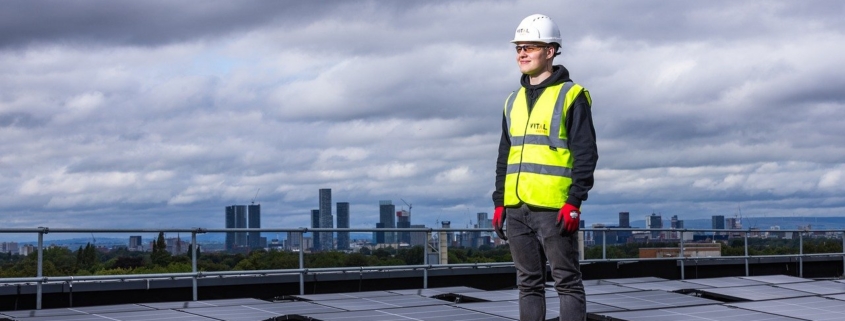Real-World Example of Solar Savings
Case Study: Maximizing Solar Incentives for a Boston Business
Let’s explore a comprehensive case study of a commercial business located in a qualified low-income area in Boston, MA. This business is considering installing a solar energy system with an initial cost of $200,000. By leveraging available tax credits and incentives, the business can significantly reduce its solar investment cost. Here’s a detailed breakdown:
30% Federal Solar Tax Credit (ITC): The Federal ITC allows businesses to claim 30% of the total solar system cost as a tax credit.
Calculation:
30% of $200,000 = 0.30 × $200,000 = $60,000.
Benefit: $60,000.
10% Domestic Content Bonus: An additional 10% credit is available if a required percentage of the installed solar equipment is domestically manufactured or sourced.
Calculation:
10% of $200,000 = 0.10 × $200,000 = $20,000.
Benefit: $20,000.
10% Low-Income Bonus: If the property is located in a Qualified Low-Income area, the business can claim an additional 10% credit.
Calculation:
10% of $200,000 = 0.10 × $200,000 = $20,000.
Benefit: $20,000.
REAP Grant (Rural Energy for America Program): For this case study, let’s assume the business qualifies for a 40% REAP grant.
Calculation:
40% of $200,000 = 0.40 × $200,000 = $80,000.
Benefit: $80,000.
To calculate the total savings from these incentives, we add the individual benefits:
$60,000 (Federal ITC) + $20,000 (Domestic Content Bonus) + $20,000 (Low-Income Bonus) + $80,000 (REAP Grant) = $180,000.
Total Savings: $180,000.
Net Cost After Incentives: Subtract the total savings from the initial system cost to find the net cost:
$200,000 (Initial System Cost) – $180,000 (Total Incentives) = $20,000.
Net Cost: $20,000.
Accelerated/Bonus Depreciation: Additionally, the business can benefit from accelerated or bonus depreciation. Let’s assume the business chooses to expense 60% of the system cost immediately.
Calculation:
60% of $200,000 = 0.60 × $200,000 = $120,000.
Depreciation Benefit: $120,000.
Final Financial Summary
- Initial System Cost: $200,000
- Total Incentives and Savings: $180,000
- Net Cost After Incentives: $20,000
- Depreciation Benefit: $120,000
By leveraging these incentives and the accelerated depreciation method, the business can drastically reduce the upfront and long-term costs of their solar investment, showcasing the substantial financial advantages of going solar.
